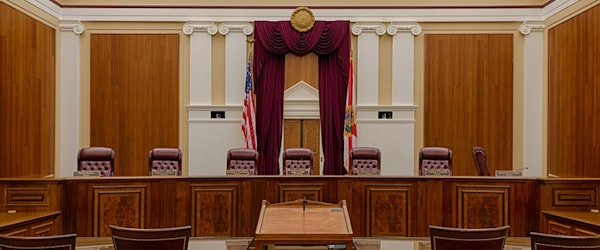
Expert Witness Testimony and the Daubert Amendment
Thursday, August 24th, 2017 David McIntosh Voelpel Claim Service, Inc.The Florida Supreme Court, based on recommendations by the Florida Bar Code and Rules of Evidence Committee, has refused to adopt changes to multiple Florida Statutes to the extent they are procedural. In its decision dated February 16, 2017, the Court declined to adopt the statutory changes, stating, "[a]fter considering the numerous filings in this case and having had the benefit of oral argument, the reasons discussed below, we follow the committee's recommendation and declined to adopt to the extent they are procedural, the changes to section 90.702 and 90.704 of the evidentiary code made by the Daubert amendment."
While there is some debate, it appears that this does not yet kill the Daubert standard as the guiding principles for expert witness testimony. Interesting, in the past, courts generally adopted changes to the evidence code which are passed into law by the legislature. However, the Court does reserve the right to reject such statutes under its rulemaking authority. In this case, the Court has chosen to exercise that authority.
This sets up the interesting dilemma for Florida practitioners-- the rules of evidence have not been amended to conform with the Florida Statutes. A careful reading suggests that the opinion does not outright reverse Daubert and leaves standing the statute. The Court specifically commented, "while the court does not address the constitutionality of a statute or proposed rule within the context of rules case, the fact that there may be “grave concerns about the constitutionality of the amendment" has been a basis previously for courts not adopting an amendment to the evidentiary code to the extent that it is procedural."
Prior to the adoption of Daubert as the standard for admitting expert witness testimony, Florida had followed the Frye standard. That standard is based upon a decision made by the US Supreme Court in 1923 in a murder case in which the defense offered expert testimony that the accused had passed a systolic blood pressure deception examination (i.e. lie detector test). In Frye, the Court discussed that, "[t]he rule is that the opinions of experts or skilled witnesses are admissible in evidence in those cases in which the matter of inquiry is such that inexperienced persons are unlikely to prove capable of forming a correct judgment upon it... When the question involved does not lie within the range of common experience or common knowledge, but requires special experience or special knowledge, then the opinions of witnesses skilled in that particular science, art, or trade to which the question relates are admissible in evidence." Additionally, the Court stated, “Somewhere in this twilight zone the evidential force of the principle must be recognized, and while courts will go a long way in admitting expert testimony deduced from a well-recognized scientific principle or discovery, the thing from which the deduction is made must be sufficiently established to have gained general acceptance in the particular field in which it belongs. We think the systolic blood pressure deception test has not yet gained such standing and scientific recognition among physiological and psychological authorities as would justify the courts in admitting expert testimony deduced from the discovery, development, and experiments thus far made."
The Daubert standard was adopted and passed by the Florida Legislature in July of 2013 bringing Florida in line with the federal courts and 36 other state courts. In Daubert, the US Supreme Court indicated, "[rule 702 - place appropriate limits on the admissibility of purportedly scientific evidence by assigning to the trial judge the task of ensuring that an expert's testimony both rests on a reliable foundation and is relevant to the task at hand."
Ultimately, the decision by the Florida Supreme Court not to adopt the legislative changes to the rules of evidence would likely invite the appeal of a factual case upon which the Court might then decide the constitutionality of the statute. Until then, Daubert is still the standard in Florida state courts.
